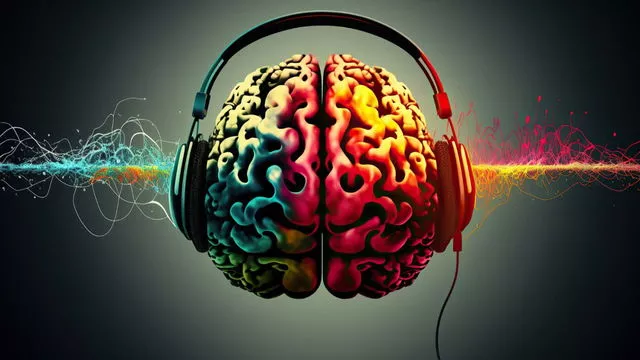Music has long been known for its ability to calm the mind and body. From lullabies to soothing meditation playlists, music can transport us to a state of tranquility, making it the perfect sleep companion. The head of the Somnology Center of the MEDSI Clinical Diagnostic Center on Krasnaya Presnya, a functional diagnostics doctor of the highest category, told Mednovosti how music affects our brain.
 6034
6034
Listening to music is not just pleasant, it is useful. Research has shown that music can help reduce anxiety, lower your heart rate, strengthen your immune system, and improve your mood and memory.
Music can evoke strong emotions, vivid memories, and even affect your heart rate and stress levels.
The right sounds can help us relax, take our minds off the worries of the day and pave the way for a restful sleep. In addition to creating a relaxing atmosphere, music has the following effects on sleep:
Music can improve the quality of sleep. Research has shown that listening to soothing music before bed can help reduce sleep latency (the time it takes to fall asleep), increase sleep duration, and improve sleep quality. The main thing is the tempo and rhythm of the music. Slow, steady rhythms can help slow our breathing and heart rate, signaling to our bodies that it's time to rest.
Music can increase energy levels. Soothing melodies increase the time spent in the restorative stages of slow-wave and REM sleep. It increases energy and functionality.
Music can reduce anxiety and stress. Music can also activate the parasympathetic nervous system, lowering blood pressure, heart rate, and anxiety-producing stress hormones such as cortisol. Slow instrumentals can take your mind off the repetitive, anxious thoughts that keep you stressed.
Music can reduce insomnia. The relaxing effects of music can help people with insomnia fall asleep faster and stay asleep longer. Fewer disturbing awakenings will help you spend more time in deep, restorative sleep rather than light, shallow sleep.
Music brings pleasure. Pre-enjoying your favorite feel-good songs can bring back happy memories and emotions that can help combat anxiety. Research shows that music can trigger a dopamine release and may even help prevent depression.
The genre and composition of the music you use to sleep plays a crucial role. For example, music with a constant volume and slow melodies may be better for promoting sleep than music with sudden changes in volume or complex, fast-paced melodies. Such sounds are annoying and can wake you up when you fall asleep.
What is the best music to fall asleep to?
- Classical music
- Ambient
- Relaxing music
- Music for meditation
- New Age Music
- “Music of the Brain”
< /ul>
The steady tempo of classical music and its natural ebb and flow closely mimic our restful sleep patterns. Familiar orchestral works are also slightly distracting and distracting to the mind.
Music characterized by atmospheric, textured soundscapes, can create a feeling of calm and space, helping to calm the mind and prepare for sleep.
As the name suggests, chill-out music is designed to help you relax. It often has a slow tempo, soft melodies and smooth rhythms to help you fall asleep. Genres such as downtempo or trip-hop fall into this category.
Meditation music, often used for relaxation and mindfulness practice, can also be a great tool for sleep. This genre typically uses long, slow, repetitive melodies designed to help you focus and relax.
Serene, mostly instrumental New Age music often incorporates natural sounds such as ocean waves, rain or birdsong to further relax.
Music therapy for the brain can improve your sleep and clear your thoughts with your own unique sound. This method records your brain waves in active and passive states and then converts them into a classical music CD that you can listen to while you relax or sleep. The method was developed in 1991 by Professor Yakov Levin at the Moscow Medical Academy. Sechenov.
Researchers have developed algorithms to convert an electroencephalogram (EEG) into a personalized music file. By recording EEGs while in a relaxed state and carefully editing the desired frequencies and then converting them into music, scientists found that they could produce a brain-entraining effect that promotes relaxation and sleep.
By experimenting with different instruments, they found that classical piano gives the best effect. In double-blind controlled studies, it was noted that 80% of subjects reported improved sleep. Interestingly, the subjects who listened to the music of another person's brain showed no changes, even when they were told that it was their own music.
